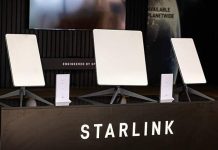Africa-Press – Namibia. STELLENBOSCH University PHD student Takunda Gwanzura has invented a diagnostic biosensor that claims to do rapid testing for Covid-19 in 15 to 30 seconds.
Currently, the gold standard method of testing is the PCR test, which has a turnaround time of 24 hours or more due to the laboratory processing required.
Gwanzura says the new technology, called the Covidometer, could deliver results within 15 to 30 seconds, and it is a portable device that requires no lab work. The device would allow large-scale screening of groups of people as they enter a space where social distancing may not always be possible.
He says most of the validation work has been done with the help of the PathCare pathology laboratory group. There are currently 13 Covid-19 diagnostic tests using antigen detection technology that have currently been given emergency use authorisation (EUA) by the US Food and Drug Administration.
The most significant competitor is the Celltrion Sampinute, as it uses the most similar method of antigen detection, but takes 10 minutes to report a result.
Gwanzura and Stellenbosch-based bio-engineering research support organisation innovation4life were shareholders in a spin-off company, Nanosens4life, which was founded to commercialise the technology. He says he had initially brought in innovation4life to help with the clinical trials and funding of the project.
He says the project was initiated in August 2020. The first phase, an assessment of the sensor on biological samples (saliva from Covid-19 patients) had been completed. The project was expected to be completed by the end of this year after which it would be ready to enter industrialisation and commercialisation.
A production facility in Milnerton, Cape Town, would produce the devices, he says. Due to the pandemic, the FDA had an accelerated approval process for Covid-19 diagnostic tests in the US, and Gwanzura says they are approaching South African and Australian regulatory authorities to identify their requirements for early access to these markets.
“There is a pressing need for reliable screening tools that can keep people safe when they work, study, shop, travel on public transport, and the many other activities that may risk exposure to the virus.
“Many such diagnostic tests have been developed, but concerns around their reliability have been raised. The quickest result at present is around 15 minutes, which will not allow large numbers of people to be screened before they enter places where social distancing is difficult,” he says.
The Covidometer uses electrochemical change to detect presence of antigens, and its high sensitivity allows detection at an early stage of infection (pre-symptomatic).
“Due to the reach of the pandemic, the user base for the Covidometer is potentially very large. As an example, the mining, manufacturing and basic education sectors are some sectors where rapid screening would be needed on a regular basis,” Gwanzura said in a statement.
The target price-point for the South African market was expected to be N$600 to N$800 for the device. The open market price for the electrodes was expected to be N$80 per electrode.
For More News And Analysis About Namibia Follow Africa-Press






